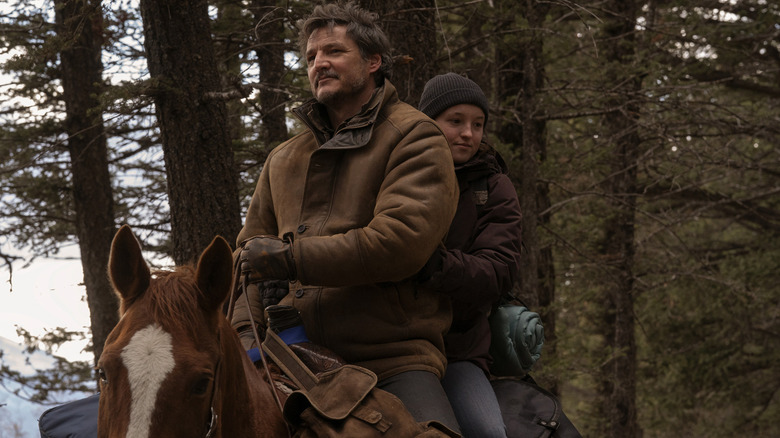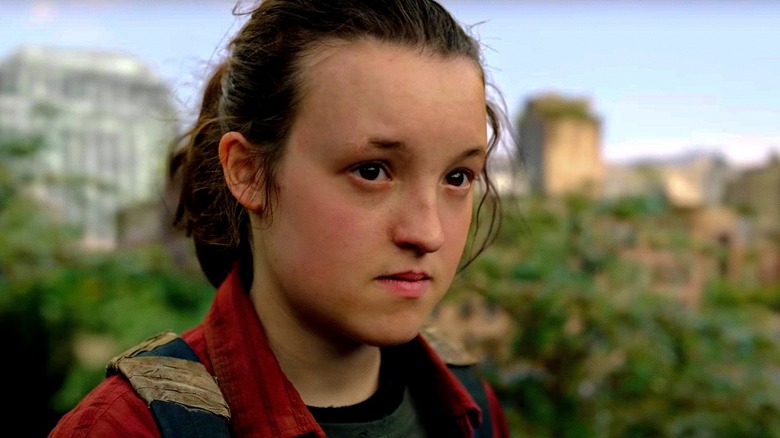The Last Of Us Showrunner Has No Problem Changing Character Fates From The Game
Naughty Dog's "The Last of Us" has endured over the last 10 years and counting. There are solid reasons behind the survival-horror video game's overwhelming popularity, including a compelling, immersive storyline that presents moral quandaries that are uncomfortable and gut-wrenching at the same time. "The Last of Us" is intrinsically entrenched in pathos, as it charts the correlation between love and violence and how these dual impulses shape us in a volatile, apocalyptic world. The first installment's follow-up, "The Last of Us Part II," anchors itself in a tragic death, which fuels one of its characters to walk a path of no return, reiterating the themes of unhealed trauma and cyclical grief.
Earlier this year, Craig Mazin and Neil Druckmann were able to catch lightning in a bottle with HBO's near-sublime "The Last of Us" adaptation, which walked the tightrope of being faithful to the source material while also indulging in meaningful artistic liberties. The duo was able to flesh out complex moral situations for characters trapped in a world teeming with the Infected, who, while dangerous, appear benign in comparison to the ruthless cruelty of humans. While most of season 1 remained faithful to key in-game plot points and character moments, significant additions were made to enrich the story further.
In spite of some unpredictable moments, the fans of the game remained unsurprised by the deaths in the show, as most of them mirrored character storylines in the source material. However, season 2 — which will adapt a chunk of "The Last of Part II" — provides little solace, as Mazin told The Hollywood Reporter that he and Druckmann have no issue altering character fates for the sake of the story. Here's what Mazin had to say about season 2.
No one is safe
When asked if the showrunners were nervous about adapting the controversial aspects of "The Last of Us Part II," Mazin explained that the writing process for the show has never been geared towards anticipating potential audience reactions, positive or negative, as the goal is to remain authentic to the characters and the storyline. Narrative decisions that were never a part of the source material have always been a part of the writing process, a key example being Bill and Frank's episode, which added unfathomable depth to the series' ethos. That also applies to season 2, which might include character fates that diverge from the games, meaning "anyone can die at any moment":
"Anybody that has played the game and then watched the first season knows that sometimes we do exactly what happened to the game and sometimes we do something wildly different ... If you are planning on running a series for as long as it can, you put plot armor on your main characters until such time the actors are asking for too much money or their Q score goes down or the ratings go down, and then you kill them. That's not what we do or what HBO does. So anyone can die at any moment, as far as I'm concerned."
This is a bold creative choice given how strongly people feel about "The Last of Us II" and its themes, which have elicited intense emotions and divisive opinions in the years since its release. Mazin also addressed the anxieties surrounding potential backlash, saying he's hopeful that decisions audiences initially disagree with will start to make sense over time. To prove his point, he explained how some folks were wary of Ellie's characterization in earlier episodes, but eventually warmed up to this rendition when she naturally developed a bond with Joel (Pedro Pascal) and revealed her vulnerabilities in an organic, nuanced manner.
Stay tuned for more news about season 2 after the strikes conclude.

